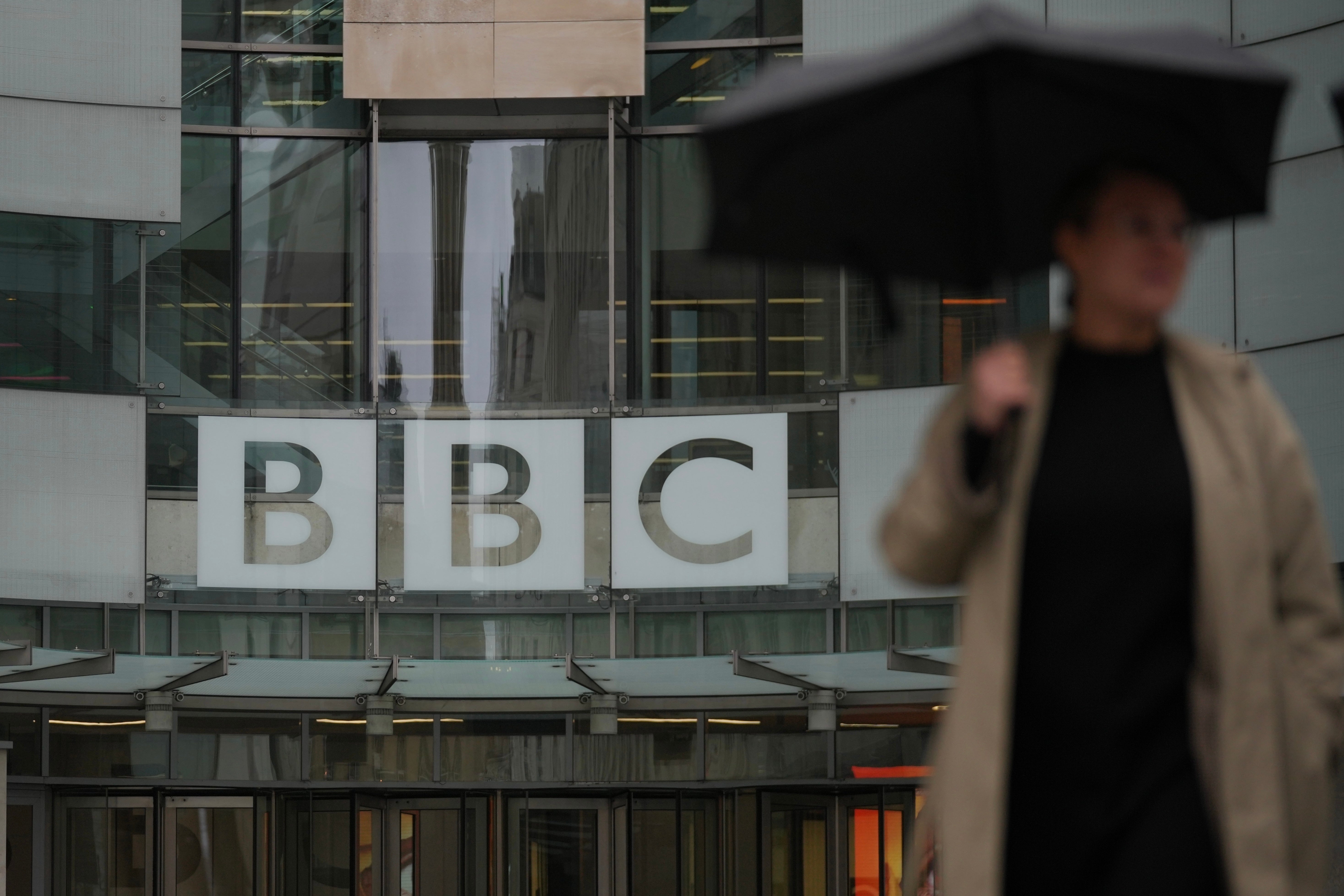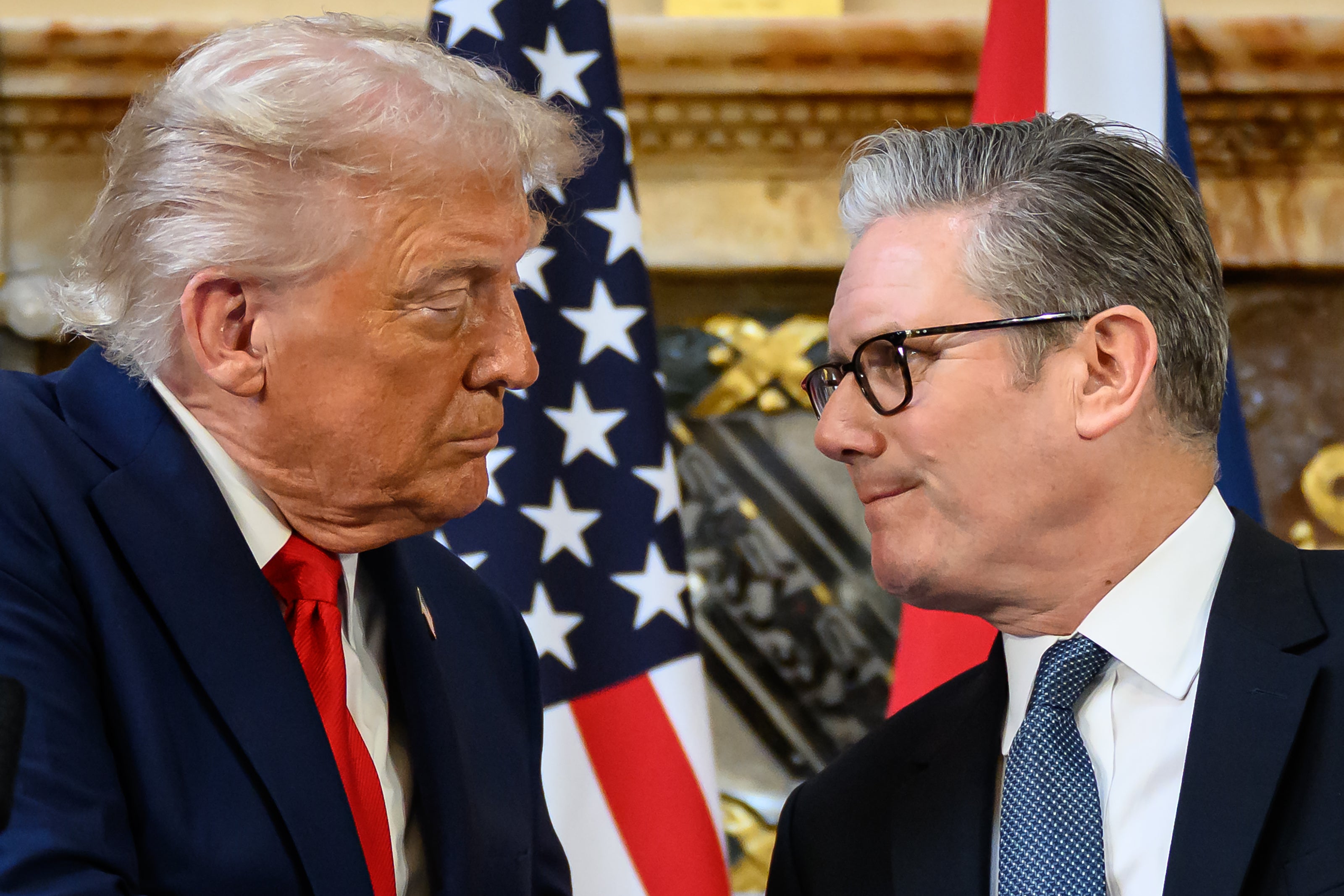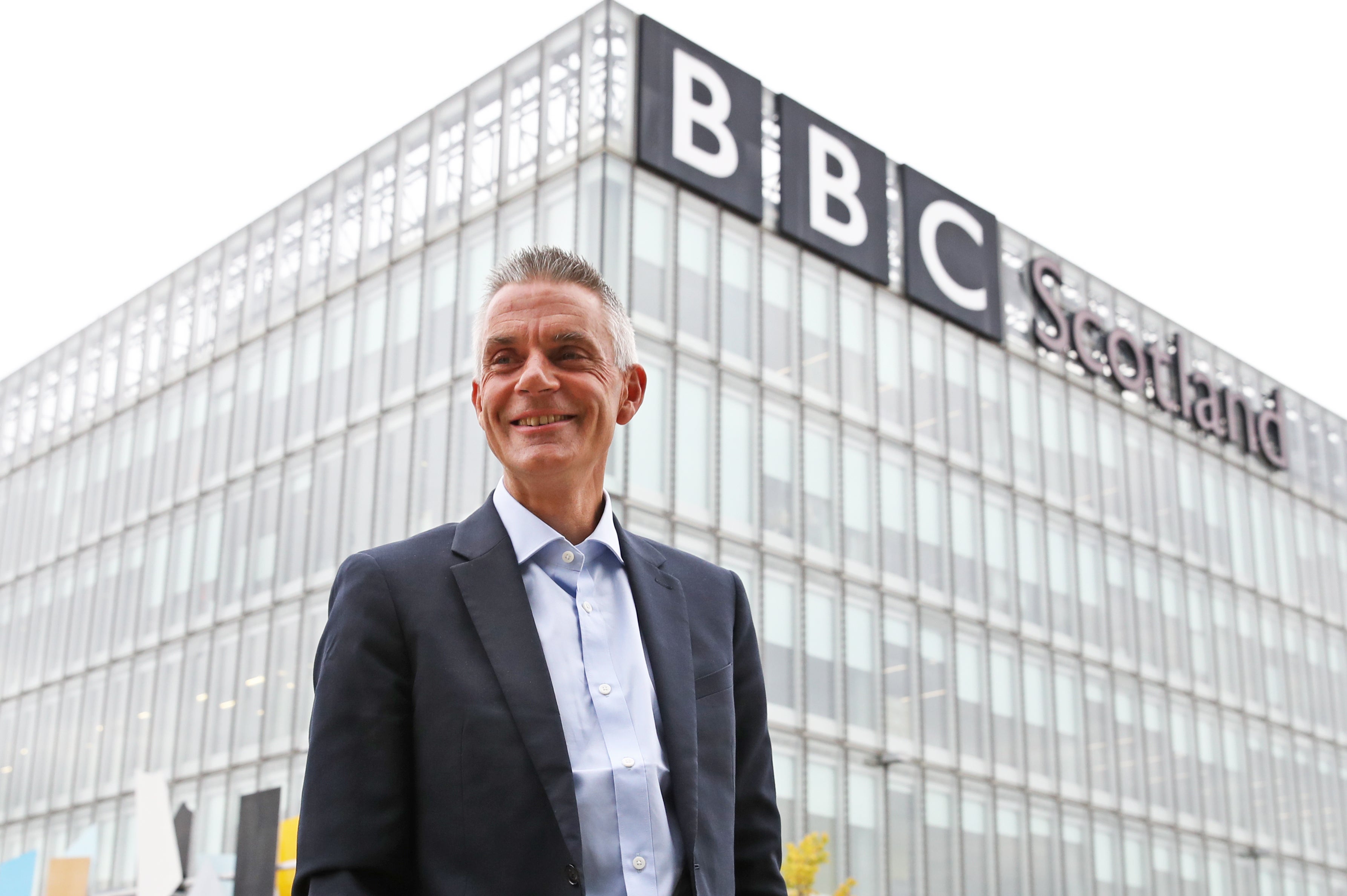Donald Trump has threatened to sue the BBC for $1bn (£759m) over its editing of his speech in a Panorama episode, even as the broadcaster publicly apologised for the “error of judgement” that has already claimed the head of two senior executives.
The US president’s legal team wrote to the corporation on Monday demanding a full and fair retraction, an immediate apology and compensation by Friday – or else he would pursue legal action, adding: “The BBC is on notice.”
His threat represents the latest blow for the broadcaster over accusations it “misled” audiences by selectively editing a speech he made on 6 January 2021.
The letter says: “President Trump will be left with no alternative but to enforce his legal and equitable rights, all of which are expressly reserved and are not waived, including by filing legal action for no less than $1,000,000,000 (one billion dollars) in damages.”
BBC chair Samir Shah said the corporation is “considering how to reply” to the ultimatum, but warned the BBC must be “prepared for all outcomes”.
Mr Trump has filed lawsuits against media companies before, including The New York Times and CNN. His lawyers said the BBC has violated Florida’s defamation law.
It follows the leaking of a memo written by Michael Prescott, a former external adviser to the BBC’s editorial standards committee.
The note shared concerns about institutional bias within the corporation and said the way clips of Mr Trump’s speech were spliced together in the 2024 episode made it appear he had told supporters he was going to walk to the US Capitol with them to “fight like hell” – removing a section where Mr Trump said he wanted supporters to demonstrate peacefully.
“The BBC would like to apologise for that error of judgement,” Mr Shah said in a letter to MPs on Monday. But he rejected claims of systemic bias and denied that the BBC had sought to “bury” the issue.
Two of the BBC’s most senior figures, director general Tim Davie and CEO of News Deborah Turness, have resigned over the furore.

Mr Trump welcomed the BBC resignations and claimed there had been an attempt to “step on the scales of a presidential election”, adding on social media: “What a terrible thing for Democracy!”
It is understood Sir Keir Starmer and Mr Trump have not spoken over the weekend following his criticism, and neither have US and British officials.
The prime minister’s spokesperson said he did not believe the BBC was institutionally biased, and Liberal Democrat leader Sir Ed Davey urged his counterparts across the political spectrum to “defend the BBC” from Mr Trump.
The Times quoted BBC sources as describing the departures as the result of “death by a thousand cuts”, in what is the latest episode in a string of high-profile controversies involving the broadcaster.

Over the summer, it was forced to issue another apology over its livestream of Bob Vylan’s controversial Glastonbury set. It followed intense criticism in February over its documentary Gaza: How to Survive a War Zone, when it emerged the programme’s 13‑year‑old narrator was the son of a Hamas official.
In May, veteran presenter Gary Lineker announced he would be leaving the BBC earlier than planned after his 26 years with the corporation following a row over his social media posts.
In November last year, accusations of misconduct and inappropriate behaviour against MasterChef presenter Gregg Wallace also became the subject of internal investigations.
Questions have been raised about how effectively the BBC has dealt with accusations of institutional bias, as it failed to either defend itself or apologise when the memo was published.

The BBC’s culture and media editor, Katie Razzall, reported that the broadcaster had a statement “ready to go”, admitting it should have made it clear there had been splicing of the speech, but that instead, the board decided to send a letter to parliament’s culture, media and sport committee.
A former controller of BBC One, Peter Fincham, said the broadcaster has a “habit” of “playing dead” while in crisis.
“One of the BBC’s worst habits is to think it’ll be alright to play dead,” he told Radio 5 Live, adding: “This report came in May, and they didn’t do anything about it.”
It was also reported that Ms Turness was “ripped apart” by a board meeting last week, while the former editor of The Sun newspaper David Yelland described the resignations as a “coup” and an “inside job”.
Several US media companies, including CBS and ABC News, have recently settled lawsuits filed by the US president.
While Mr Shah accepted criticism of the Trump edit, he hit back at suggestions that the BBC had sought to bury any of the allegations around bias or failed to tackle any problems. Asked if the charges of systemic bias were wrong, he said “yes”.
“The BBC would like to apologise for that error of judgement,” he said in a letter to lawmakers.
He said there were cases of individual errors and there were issues that pointed to underlying problems, but the notion of systemic or institutional bias did not hold true.
“I’ve worked in BBC News,” he told the BBC. “I know that BBC News’s DNA and culture is to be impartial. It’s to provide the best news we can and the most trustworthy news.”
Schumer faces calls to step aside after Dems join Republicans on shutdown vote: Live
Trump threatens to ‘dock’ already unpaid air traffic controllers who call out sick
Trump threatens to sue BBC for $1bn over Panorama edit scandal: Live
Fox star trashes Trump’s 50-year mortgage plan: ‘I do not like this idea’
Full list of Morrisons cafe and store closures revealed
British journalist Sami Hamdi to be released following ICE detention, family say







